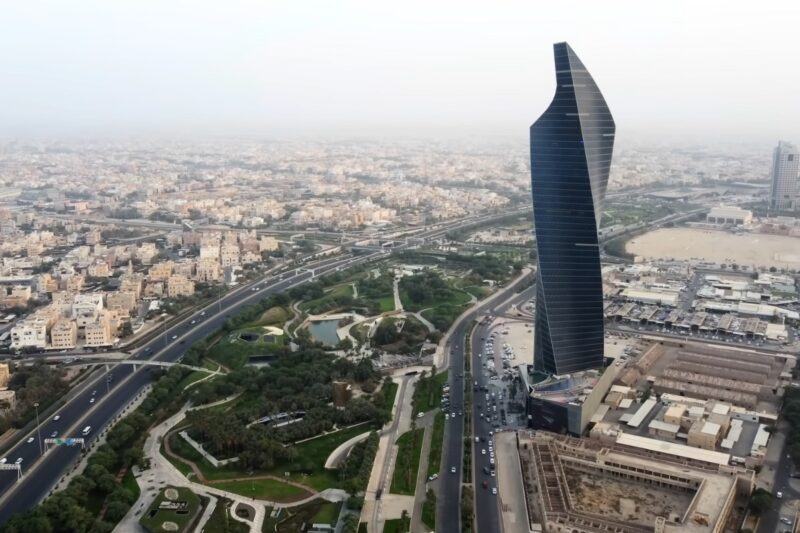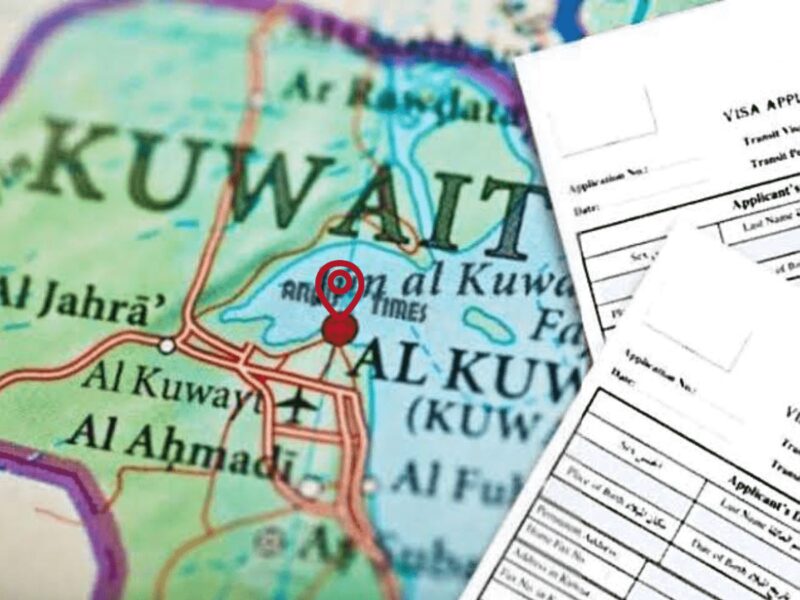Did you know that over 30,000 U.S. citizens visit Kuwait each year, many of them for business or tourism? As an American traveler, it’s crucial to be aware of the unique legal landscape and security considerations in this Middle Eastern country.
Imagine stepping off the plane in Kuwait, eager to explore a new culture, only to find yourself unexpectedly facing harsh penalties for behaviors that may be commonplace back home. The reality is that U.S. citizens in Kuwait are subject to local laws and customs, even if they seem markedly different from American standards.
Whether you’re planning a business trip or a family vacation, it’s essential to research the latest Kuwait travel advisory, Kuwait safety information, and Kuwait travel restrictions before your departure. The Kuwait security situation can change rapidly, and being informed can help you navigate your trip with confidence and avoid potential pitfalls.
Key Takeaways
- The current U.S. travel advisory for Kuwait recommends exercising normal precautions, but some areas have increased risk.
- U.S. citizens are subject to Kuwait’s local laws and penalties, which may be harsher than American standards.
- Researching Kuwait’s legal requirements and customs is crucial for a successful and safe trip.
- The U.S. Embassy in Kuwait can provide assistance, but cannot intervene in legal matters or get travelers out of trouble.
- Staying informed about the latest Kuwait travel advisory, Kuwait safety information, and Kuwait travel restrictions is essential for American travelers.
Legal Considerations for US Travelers in Kuwait

As a US traveler in Kuwait, it’s crucial to be aware of the local laws and regulations, as violating them can result in severe consequences, including expulsion, arrest, or imprisonment. Even unintentional infractions can lead to legal issues, so it’s essential to research and understand the legal landscape before your visit.
Criminal Penalties
The possession and use of alcohol and narcotics are strictly prohibited in Kuwait. Convictions for drug-related offenses, such as possession, use, or trafficking, can carry heavy fines, lengthy jail sentences, or even the death penalty. Additionally, certain actions are considered illegal, such as humiliating or insulting any person, taking photos or videos without consent, having unpaid debts, driving without a Kuwait license, gambling, and prostitution. If you are arrested or detained, it is important to immediately request that the police or prison officials notify the US Embassy.
Alcohol and Drugs
The import, possession, and consumption of alcohol and pork products are prohibited in Kuwait. Bringing in even small amounts of these items can result in confiscation and potential legal consequences. Travelers should exercise caution and refrain from engaging in any activities related to alcohol or drugs during their stay.
Arrest Notification

If a US citizen is arrested or detained in Kuwait, it is crucial to request that the police or prison officials immediately notify the US Embassy. The Embassy can provide assistance and help ensure that the individual’s rights are protected, but they cannot intervene in legal matters or secure the release of a US citizen who has been arrested.
Travel Bans
Certain legal issues, such as business disputes, court orders, immigration violations, or government investigations, can result in travel bans that prohibit a person from departing Kuwait. These bans can have significant consequences for US travelers, potentially preventing them from leaving the country until the issue is resolved.
Children Born Out of Wedlock
In Kuwait, sexual relations outside of marriage are considered a criminal offense. As a result, parents may face difficulties in obtaining a birth certificate or residence permit for a child born out of wedlock. US travelers should be aware of this legal consideration when planning their trip or family arrangements.
Customs and Prohibited Items
Travelers to Kuwait should be aware of the country’s strict customs regulations and prohibited items. Alcohol, pork products, and pornography are among the items that are strictly forbidden from entering the country. Kuwaiti officials take these restrictions seriously, and violators may face fines or even confiscation of their goods.
Counterfeit and Pirated Goods
Another area of concern for Kuwait customs is the importation of counterfeit goods and pirated items. While these products may be readily available in many countries, bringing them into Kuwait can result in severe penalties, including fines and potential legal action. The U.S. Department of Justice website provides detailed information on the legal implications of importing such items.
Travelers to Kuwait must exercise caution and ensure they comply with the country’s customs regulations to avoid any legal issues or confiscation of their belongings. Understanding the prohibited items and researching the potential consequences of bringing in counterfeit goods or pirated items can help ensure a smooth and hassle-free trip.
Kuwait Travel Advisory
According to the U.S. Department of State, the current travel advisory for Kuwait is to exercise normal precautions. However, travelers should be aware that some areas in Kuwait have an increased risk. U.S. citizens are subject to local laws and penalties in Kuwait, even if they seem harsh compared to U.S. standards.
Travelers to Kuwait should check the latest travel advisory information on the U.S. State Department website to stay informed about the security situation and any potential risks. By staying up-to-date on the Kuwait travel advisory, Kuwait travel warnings, and Kuwait security situation, U.S. citizens can better prepare for a safe and successful trip to the country.
Special Considerations for Travelers

When planning a trip to Kuwait, U.S. travelers should be mindful of several special considerations to ensure a smooth and safe experience. These include navigating the unique needs of faith-based travelers, LGBTQI+ individuals, those requiring accessibility assistance, and women travelers.
Faith-Based Travelers
Faith-based travelers visiting Kuwait should refer to the U.S. State Department’s guidance on faith-based travel. Understanding the cultural and religious norms in the country can help ensure a respectful and rewarding experience.
LGBTQI+ Travelers
LGBTQI+ travelers should be aware that consensual same-sex sexual activity between men is illegal in Kuwait. Transgender individuals have also reported instances of harassment, detention, abuse, and assault by security forces. These travelers should exercise caution and be aware of the potential risks.
Travelers Who Require Accessibility Assistance

Accessibility and accommodations in Kuwait may differ significantly from the U.S. Public transportation options are limited, and sign language interpretation services may be scarce. Travelers with disabilities or special needs should research their options thoroughly and be prepared to advocate for their requirements.
Women Travelers
Women travelers in Kuwait should exercise particular caution and be aware of dress codes that require shoulders and knees to be covered in many public places. Following local customs and etiquette can help ensure a respectful and incident-free trip.
Entry and Exit Requirements
Navigating the Kuwait entry and exit requirements is an essential consideration for U.S. travelers. To ensure a smooth journey, it is recommended that U.S. citizens consult the U.S. State Department’s “Learn About Your Destination” search tool for the latest information on Kuwait’s passport and visa requirements. The U.S. Embassy in Kuwait can also provide valuable guidance on the entry and exit requirements for U.S. travelers.
Before embarking on a trip to Kuwait, U.S. travelers should familiarize themselves with the country’s entry requirements, which may include obtaining a valid passport, securing a visa, and potentially undergoing health screenings or other administrative procedures. Similarly, it is crucial to understand the exit requirements when departing Kuwait, as certain restrictions or regulations may apply.
By staying informed about the latest Kuwait entry requirements and Kuwait exit requirements, U.S. travelers can ensure a seamless and hassle-free experience during their time in the country.
Conclusion
In conclusion, U.S. travelers to Kuwait should exercise normal precautions but be aware of the unique legal considerations, customs restrictions, and special travel requirements in the country. By researching the Kuwait travel advisory, familiarizing themselves with the Kuwait travel tips, and prioritizing their safety for US travelers, American citizens can help ensure a safe and successful trip to Kuwait.
It is crucial for U.S. citizens to thoroughly understand the local laws, prohibited items, and entry/exit requirements before embarking on their journey to Kuwait. Adhering to these guidelines and staying informed of the latest travel advisories can go a long way in mitigating potential risks and ensuring a smooth and enjoyable experience in this Middle Eastern nation.
The Persian Gulf region, which includes Kuwait, also comprises Bahrain, Iraq, Oman, Qatar, Saudi Arabia, and the United Arab Emirates. Understanding the broader regional context can further enhance the travel experience.
Ultimately, a well-informed and prepared approach to travel in Kuwait can help U.S. travelers navigate the country’s unique cultural and legal landscape with confidence, allowing them to fully immerse themselves in the rich cultural heritage and explore the diverse sights and experiences that this captivating destination has to offer
FAQ
What are the legal considerations for U.S. travelers in Kuwait?

Individuals who violate local laws, even unknowingly, may be expelled, arrested, or imprisoned. Possession of alcohol and/or narcotics is illegal. Convictions for possession, use, and trafficking of drugs may include heavy fines, long jail sentences, or the death penalty. Certain actions are also illegal, such as humiliating or insulting any person, taking photos or videos without consent, having unpaid debts, driving without a Kuwait license, gambling, and prostitution. If arrested or detained, ask police or prison officials to notify the U.S. Embassy immediately.
What are the customs and prohibited items in Kuwait?
Alcohol, pork products, and pornography are prohibited items in Kuwait. Bringing in counterfeit or pirated goods may result in fines or confiscation, even though they may be prevalent in many countries.
What is the current travel advisory for Kuwait?
According to the U.S. Department of State, the current travel advisory for Kuwait is to exercise normal precautions. However, some areas have increased risk.
What special considerations should travelers be aware of in Kuwait?
Faith-based travelers should refer to the U.S. State Department’s information on faith-based travel. LGBTQI+ travelers should be aware that consensual same-sex sexual activity between men is illegal in Kuwait, and transgender individuals have reported harassment, detention, abuse, and assault by security forces.
Accessibility and accommodations in Kuwait may be different from the U.S., with limited public transportation and sign language interpretation available. Women travelers should exercise particular caution and be aware of dress codes requiring shoulders and knees to be covered in many public places.
What are the entry and exit requirements for U.S. travelers in Kuwait?
For the latest passport and visa requirements for Kuwait, U.S. travelers should consult the U.S. State Department’s “Learn About Your Destination” search tool. The U.S. Embassy in Kuwait can also provide information on entry and exit requirements.

